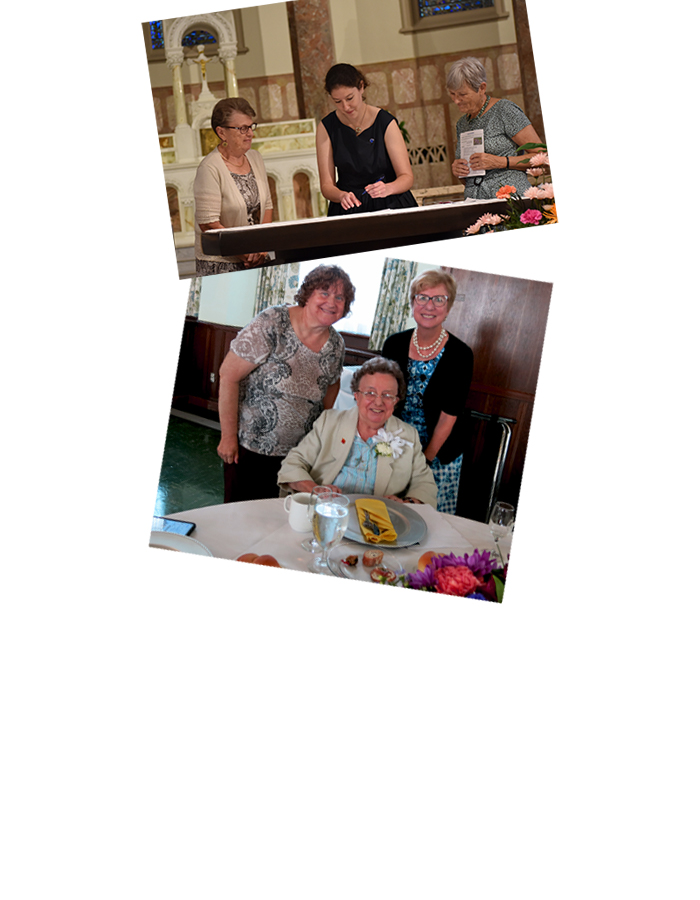Joseph Cardinal Bernardin articulated the “seamless garment” moral vision in 1983. Also known as the “consistent ethic of life,” the approach was intended to form a broad commitment to the sanctity and quality of life in a variety of issues including integrity of creation, racism, poverty, the arms race, peace, abortion, euthanasia and the death penalty. This moral vision is at the heart of the Gospel and Catholic social teaching.
The consistent ethic of life requires a shift from violence to nonviolence and away from systems that endanger or limit life, toward a protection of the common good, according to the New Zealand Catholic Bishops’ Conference in its April 1997 statement, A Consistent Ethic of Life.
“The future of humanity itself has become dependent on the wise choices made by the human family to ensure the flourishing in abundance of life, love and diversity. There must be continuing reflection on the value of life so that wise choices can be made … In order to nurture and protect all life we need to widen our understanding of what it is we are protecting and how we are to go about it. We need to recognize the interconnectedness of all living things and the value of diversity.”
Creation Care is Pro-Life
Catholic Climate Covenant
Consistent with traditional Catholic teaching, Catholic Climate Covenant recognizes care for creation and a concern for climate change as a pro-life issue.
Pope Francis Puts Caring for Migrants and Opposing Abortion on Equal Footing
By Jason Horowitz, New York Times, April 9, 2018
“Caring for migrants and the poor is as holy a pursuit as opposing abortion, Pope Francis declared in a major document issued by the Vatican.”
“Laudato Si (On Care for Our Common Home)”
Pope Francis, The Vatican, June 15, 2015
Pope Francis draws all Christians into a dialogue with every person on the planet about our common home. We as human beings are united by the concern for our planet, and every living thing that dwells on it, especially the poorest and most vulnerable.
“Caritas in Veritate (Charity in Truth)”
Pope Benedict XVI, The Vatican, June 29, 2009
Pope Benedict XVI made the connection between life ethics and social ethics, linking love, truth and justice with poverty, hunger, greed, corruption and the necessity to transform economic and political institutions.
“Evangelium Vitae (The Gospel of Life)”
Pope John Paul II, The Vatican, March 25, 1995
This encyclical by Pope John Paul II expresses the position of the Catholic Church on the value and inviolability of human life.
“Laudato Si (On Care for Our Common Home)”
Pope Francis, The Vatican, June 15, 2015
Pope Francis draws all Christians into a dialogue with every person on the planet about our common home. We as human beings are united by the concern for our planet, and every living thing that dwells on it, especially the poorest and most vulnerable.
“Evangelium Vitae (The Gospel of Life)”
Pope John Paul II, The Vatican, 25 March 1995
This encyclical by Pope John Paul II expresses the position of the Catholic Church on the value and inviolability of human life.
Consistent Life Network
Consistent Life Network is a network of organizations and individuals committed to the protection of life, which is threatened in today’s world by war, abortion, poverty, racism, the death penalty and euthanasia. We believe that these issues are linked under a “consistent ethic of life” and challenge those working on all or some of these issues to maintain a cooperative spirit of peace, reconciliation and respect in protecting the unprotected.
Pax Christi USA
Pax Christi USA commits itself to peace education and promotes the Gospel imperative of peacemaking as a priority in the Catholic Church in the United States.










